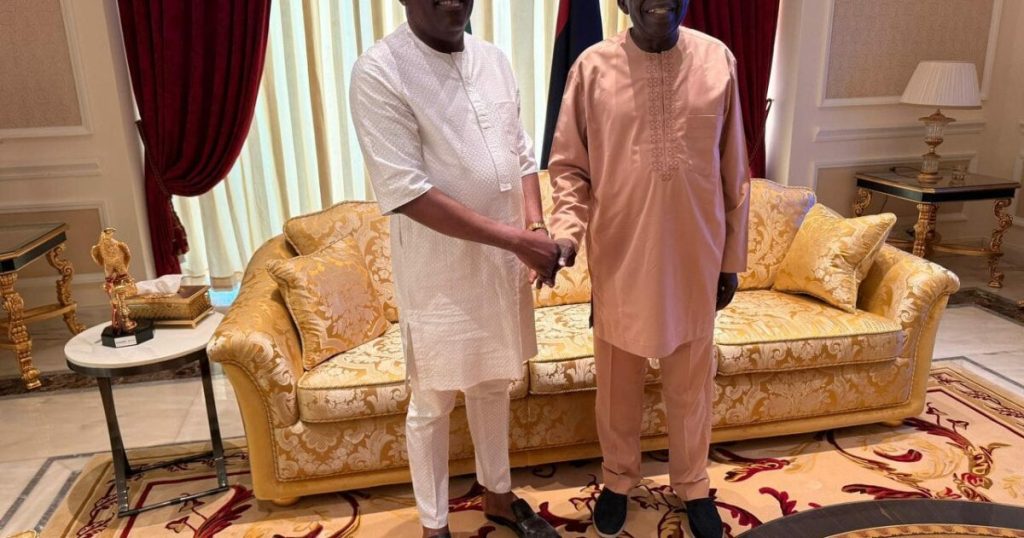Paragraph 1: The Enigmatic Visit
On Tuesday, Siminalayi Fubara, the suspended governor of Rivers State, Nigeria, made a discreet visit to President Bola Tinubu’s Lagos residence. The meeting, held behind closed doors, has sparked speculation and intrigue, particularly given the recent political tensions between the two figures. Photographs released by the State House captured Fubara and Tinubu in deep conversation, but no official details regarding the meeting’s agenda or outcomes have been disclosed. The clandestine nature of the visit has fueled public curiosity and raised questions about the true nature of their discussions.
Paragraph 2: A Turbulent Political Landscape
The backdrop to this meeting is a complex political landscape in Rivers State. Fubara’s governorship has been marked by controversy, culminating in his suspension by President Tinubu in March. This suspension, along with that of his deputy, Ngozi Odu, and all elected members of the State House of Assembly, followed a period of escalating political turmoil and discord between the governor and the state legislature. Tinubu cited the need to restore stability and order as the rationale behind the drastic measure, further declaring a state of emergency in Rivers State. The appointment of retired Vice Admiral Ibok-Ette Ibas as the state administrator underscores the severity of the situation.
Paragraph 3: The Second Encounter
The Tuesday meeting marks the second private encounter between Fubara and Tinubu since the suspension. This repeated engagement, shrouded in secrecy, adds another layer of complexity to an already delicate political situation. Observers are keenly analyzing the potential implications of these discussions, speculating on whether they signify reconciliation efforts, power negotiations, or a strategic realignment of political alliances. The lack of transparency surrounding the meetings has only served to intensify public scrutiny and fuel a multitude of interpretations.
Paragraph 4: Analyzing the Possible Scenarios
Several plausible scenarios could explain the Fubara-Tinubu meetings. One possibility is that Tinubu is seeking a peaceful resolution to the political impasse in Rivers State. A private dialogue could allow for frank discussions and potential compromises that might pave the way for Fubara’s reinstatement or a negotiated transition of power. Alternatively, Tinubu might be using these meetings to consolidate his authority and assert his control over the state’s political affairs. The private setting could provide an opportunity for a direct exchange, potentially involving concessions or agreements that benefit Tinubu’s broader political agenda.
Paragraph 5: Implications for Rivers State
The outcome of these closed-door meetings holds significant implications for the future of Rivers State. The state has been in a state of political limbo since Fubara’s suspension, with governance effectively in the hands of the appointed administrator. A resolution between Tinubu and Fubara could lead to the restoration of democratic processes and the return of elected officials. However, a failure to reach an agreement could prolong the political uncertainty and further exacerbate tensions within the state. The people of Rivers State are watching closely, anxiously awaiting clarity on their future governance.
Paragraph 6: The Need for Transparency and Accountability
While private discussions can be a necessary component of political negotiation, the lack of transparency surrounding the Fubara-Tinubu meetings raises concerns about accountability and open governance. The public has a right to be informed about the discussions that will shape their political landscape. Transparency not only fosters trust but also ensures that decisions are made in the best interests of the people. Moving forward, greater openness and communication are essential to rebuilding confidence and restoring stability in Rivers State. The future of the state hinges on the ability of its leaders to engage in constructive dialogue and prioritize the welfare of its citizens.


